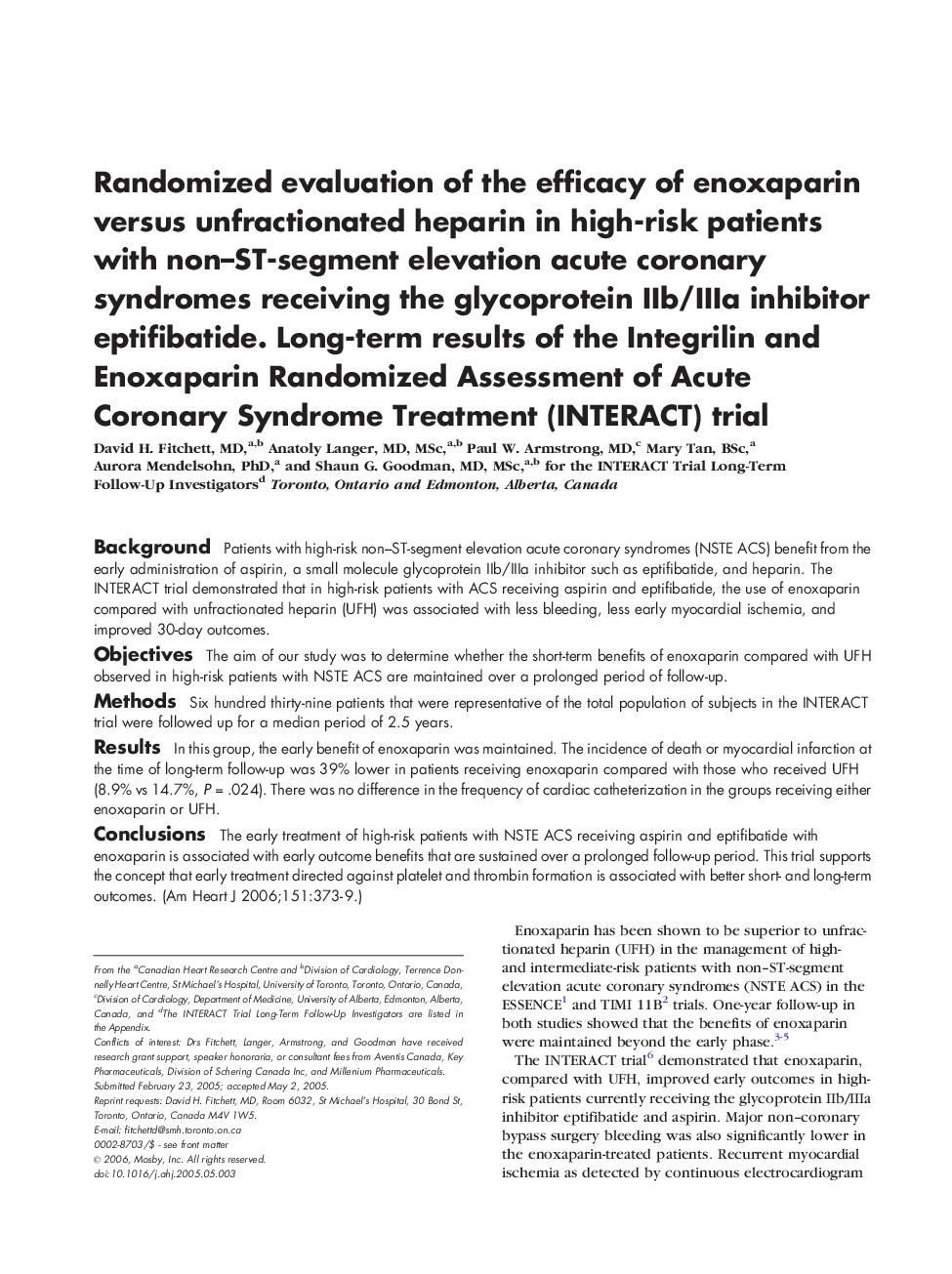| Article ID | Journal | Published Year | Pages | File Type |
|---|---|---|---|---|
| 2852033 | American Heart Journal | 2006 | 7 Pages |
BackgroundPatients with high-risk non–ST-segment elevation acute coronary syndromes (NSTE ACS) benefit from the early administration of aspirin, a small molecule glycoprotein IIb/IIIa inhibitor such as eptifibatide, and heparin. The INTERACT trial demonstrated that in high-risk patients with ACS receiving aspirin and eptifibatide, the use of enoxaparin compared with unfractionated heparin (UFH) was associated with less bleeding, less early myocardial ischemia, and improved 30-day outcomes.ObjectiveThe aim of our study was to determine whether the short-term benefits of enoxaparin compared with UFH observed in high-risk patients with NSTE ACS are maintained over a prolonged period of follow-up.MethodsSix hundred thirty-nine patients that were representative of the total population of subjects in the INTERACT trial were followed up for a median period of 2.5 years.ResultsIn this group, the early benefit of enoxaparin was maintained. The incidence of death or myocardial infarction at the time of long-term follow-up was 39% lower in patients receiving enoxaparin compared with those who received UFH (8.9% vs 14.7%, P = .024). There was no difference in the frequency of cardiac catheterization in the groups receiving either enoxaparin or UFH.ConclusionsThe early treatment of high-risk patients with NSTE ACS receiving aspirin and eptifibatide with enoxaparin is associated with early outcome benefits that are sustained over a prolonged follow-up period. This trial supports the concept that early treatment directed against platelet and thrombin formation is associated with better short- and long-term outcomes.
